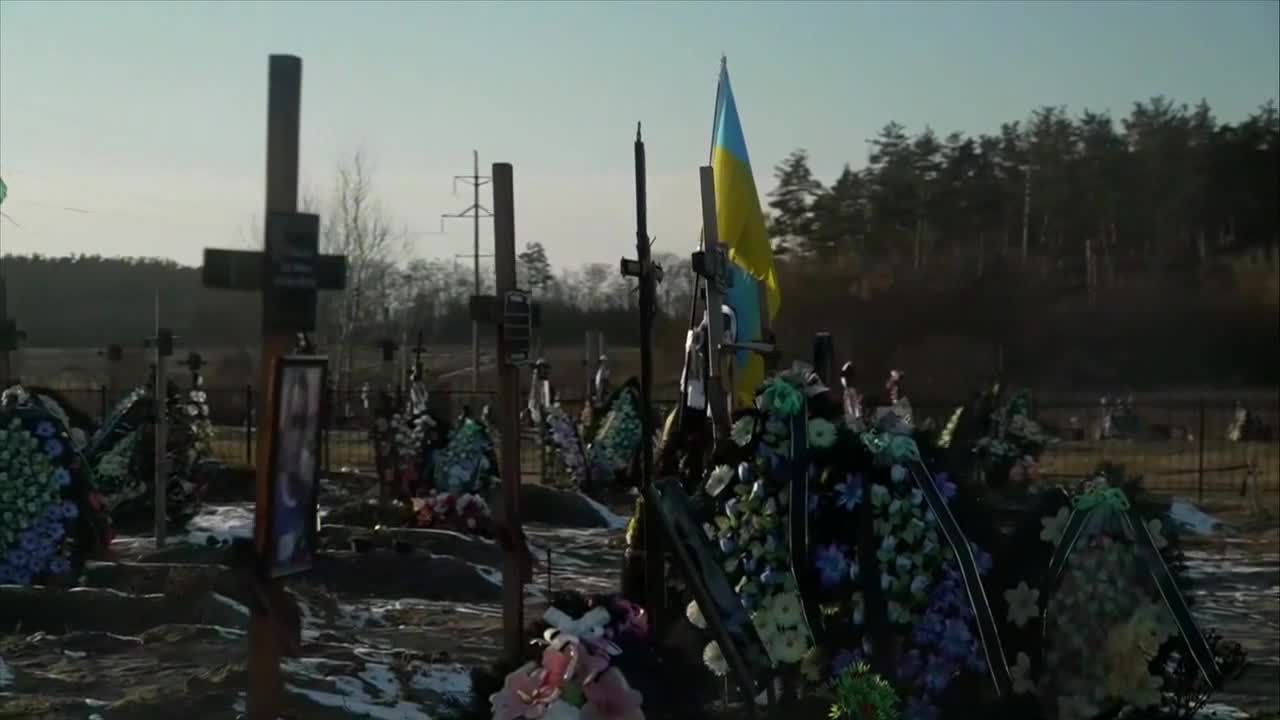Friday marks 1 year since Russian forces invaded Ukraine — Minnesotans with Ukrainian connections speak out
[anvplayer video=”5164680″ station=”998122″]
The war in Ukraine is now entering its second year.
Friday marks 365 days since the first Russian missiles hit Kyiv, Ukraine’s capital.
The end of a work week that saw President Biden visiting that city, promising ‘unwavering support.’
“For me personally, it’s a big moment,” declares prosthetist Yakov Gradinar. “Today is 16 years ago I came to the United States.”
Gradinar, Chief Medical Officer with the Protez Foundation, is flying back to western Ukraine.

The foundation, an Oakdale-based non-profit, is doing checkups on soldiers there with limb-loss injuries.
“We are seeing over 30 amputees that we filled before,” Gradinar explains. “Some of them are coming from the front line back to be followed up.”
For Gradinar and his team, including his 18-year old daughter Noyemin, the journey comes during a momentous week that included a visit to Kyiv by President Biden.
There were mixed emotions — excitement and concern — during their departure from MSP.
“It’s very hard because we have a lot of family relatives that are still back there,” Noyemin notes.
She says she has vivid memories of the night Russia launched its invasion.
“I woke up and it was around midnight,” Noyemin recalls. “I ran into Mom’s room and it was like, ‘Mom the war’s started.’ That it’s continuing on, it’s hard to see what’s going on.”
As the Russian offensive began on Feb. 24, 2022, members of Minnesota’s Ukrainian-American community were gathering outside St. Constantine’s Ukrainian Catholic Church in Northeast Minneapolis.
Stephen Vitvitsky, who has family members living in Chernivtsi, in western Ukraine, was among those voicing concern.
For the past year, he’s kept in touch with them, making Zoom calls about once a week.
“I think it’s exceptionally sad and devastating specifically for people in Ukraine who’ve had to deal and cope with a war,” Vitvitsky declares. “I mean, think about it. There’s now a generation of children who know nightly air raid sirens. Having to wake up every night and run to a bomb shelter.”
The United Nations says the cost of war to Ukraine has been high.
ABC News quotes Secretary of State Antony Blinken as saying tens of thousands of Ukrainian civilians have been killed, at least 12 million people have been uprooted from their homes, more than half the country’s energy grid has been destroyed and more than 3,000 hospitals and schools have been bombed.
“My biggest takeaway from this day is just how sad it is,” declares Chris Gehrz, a Bethel University history professor who’s extensively studied post-World War II Europe. “It’s not what I expected to see in Europe in the 21st century, but here we are. One year into a war that doesn’t seem like it’s going to end anytime soon.”
One more thing Gehrz finds interesting is how neighboring countries like Georgia are rallying around Ukraine.
Even some citizens from those countries, he says, are enlisting to join Ukrainian forces in their fight.
“Georgia, it makes sense because they’ve been invaded by Russia itself in recent memory,” Gehrz notes. “So I think this is a uniting factor for a lot of these countries, especially eastern Europe and central Asia. They’re not convinced Russia is a good partner and a good neighbor, and Ukraine amplifies those concerns.”
And then, there’s the Biden visit — with the president vowing unwavering support for Ukraine.
Vitvitski says his friends and relatives in the country say the visit, and Biden’s words, are a big deal.
“I’d go so far to say it’s a historic event,” he says. “I think it demonstrates courage, I think it demonstrates the United States’ resolve. I think it’s a great demonstration of the values we stand for, that we profess.”
“It’s been a horrific war,” adds Mary Curtin, the University of Minnesota’s Diplomat-In-Residence. “Eventually, there has to be an endgame.”
But Curtin — a 25-year veteran of the foreign service, including a four-year stint in Poland — says she has serious doubts that endgame will come soon.
“I’m afraid we are not there yet,” she explains. “That endgame Ukrainians would like to see, in which they have peace in their country, is far off, because we don’t see anything from Russia intending to end this war.”
Meanwhile, Gradinar and his team plan to stay in Ukraine for about two-and-a-half weeks.
He says the Protez Foundation has been providing prosthetics to soldiers and civilians, including two children, since last July.
Gradinar says he’s going to Ukraine because of the lack of electricity, not enough generators and a shortage of metals like titanium, used in the making of prosthetics.
He sounds optimistic about the future.
“A year ago, Ukraine was supposed to be occupied in a few days,” Gradinar exclaims. “A year later, the United States president is walking in Kyiv. It’s big for us. That support is tremendous. It’s tremendous we have some strong allies that are supporting us in this hard time.”